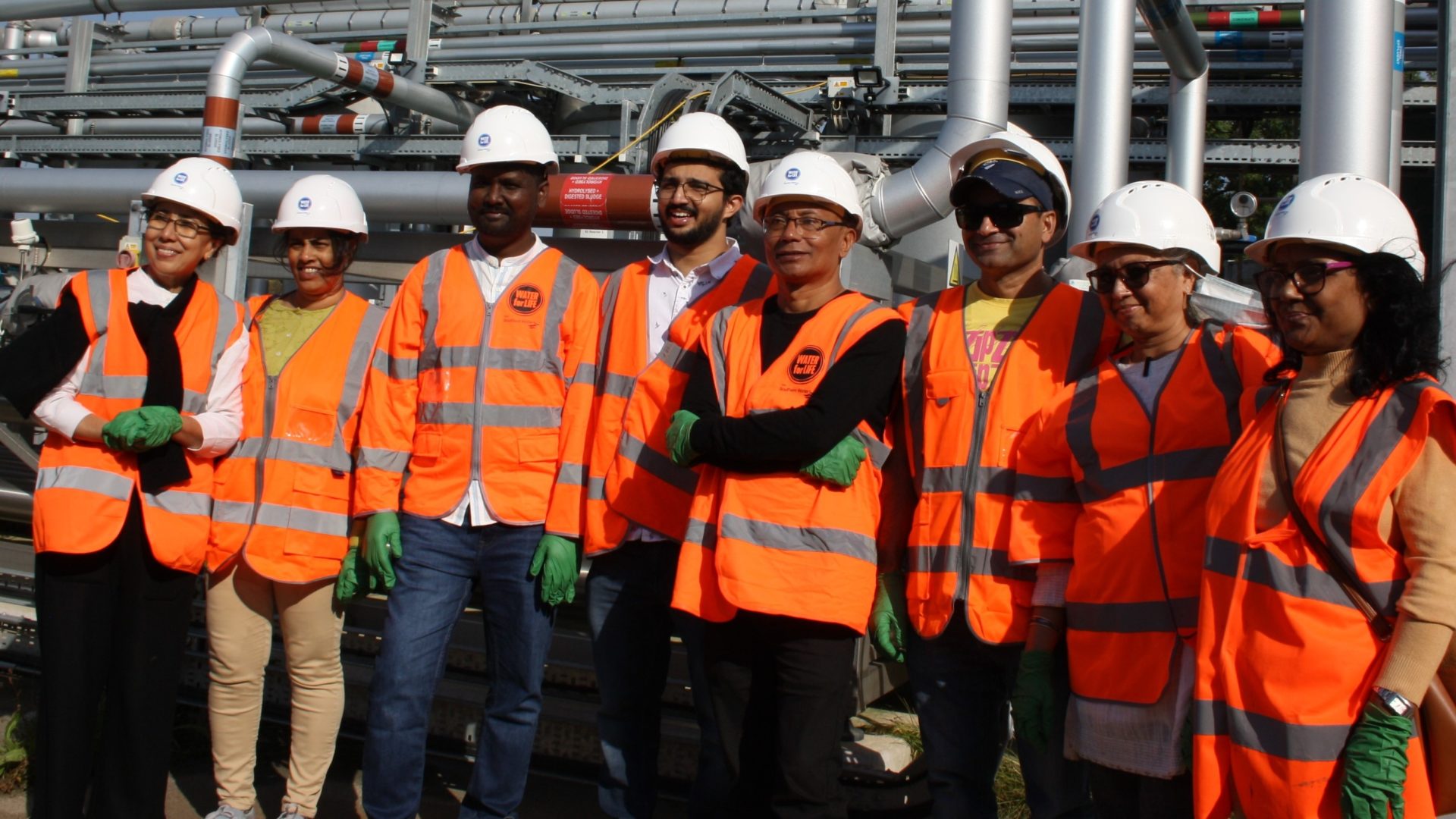Southern Water hosted delegates from Asia and Africa at its Goddards Green Wastewater Treatment Works, to showcase its new plant equipment and how it extracts resources from wastewater.
The delegates, from Nepal, Ghana, Ethiopia and India, work with Professors and Doctors from the University of Brighton. Together they contribute to a research fund project called ‘Towards Brown Gold: Re-imagining off grid sanitation in rapidly urbanising areas in Asia and Africa’.
The project looks at developing sanitation systems to help small towns that are quickly turning into urban areas, in developing countries.
Professor Sabitri Tripathi, at the Nepal Engineering College, Kathmandu, said:
“We have an urgent global challenge in our fast-growing towns in Asia and Africa. Sustainable sanitation is pivotal for human wellbeing, productivity and health. We need to strengthen our infrastructure for sewage and wastewater collection and reuse.
“Wastewater is brown gold and we are looking at it as a resource and want to unlock its potential. Our project targets learning from business models and how waste can be re-used to harness electricity and aid agriculture.
“We wished to see first-hand the technological approaches that could help us better understand the feasibility and appropriateness wastewater management and reuse options.”
The new Thermal Hydrolysis Process (THP) Plant at Goddards Green Wastewater Treatment Works is more efficient at extracting resources from wastewater, such as biosolids for fertiliser and electricity from the burning of biogas.
Adam Glenister, Environmental Management System Manager at Southern Water said:
“We were delighted to be able to show the delegates from Asia and Africa how our new equipment works and ultimately help explain the finer details of how anaerobic digestion works.”
Goddards Green is a sludge treatment centre. The new THP Plant at the site carries out anaerobic digestion to produce biosolids from wastewater sludge, which is then spread to land as a fertiliser. Gas produced from this process is burned in a combined heat and power plant, and the electricity is used on site to power it.



